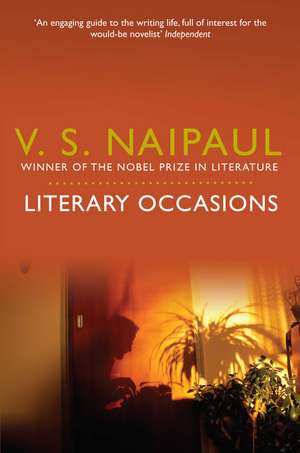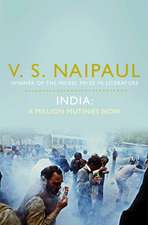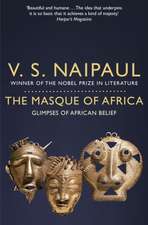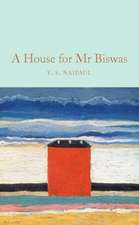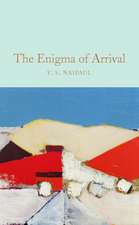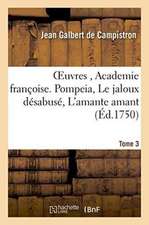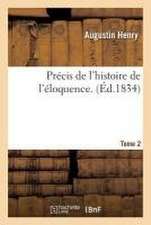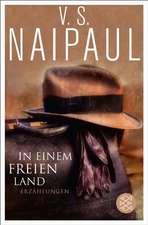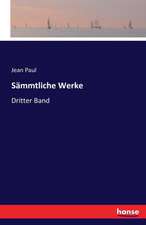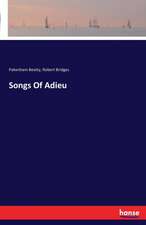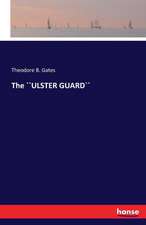Literary Occasions
Autor V. S. Naipaulen Limba Engleză Paperback – 17 iun 2011
| Toate formatele și edițiile | Preț | Express |
|---|---|---|
| Paperback (2) | 42.83 lei 22-36 zile | |
| Pan Macmillan – 17 iun 2011 | 42.83 lei 22-36 zile | |
| Vintage Publishing – 31 iul 2004 | 101.80 lei 22-36 zile |
Preț: 42.83 lei
Preț vechi: 63.11 lei
-32% Nou
Puncte Express: 64
Preț estimativ în valută:
8.20€ • 8.91$ • 6.89£
8.20€ • 8.91$ • 6.89£
Carte disponibilă
Livrare economică 31 martie-14 aprilie
Preluare comenzi: 021 569.72.76
Specificații
ISBN-13: 9780330522977
ISBN-10: 0330522973
Pagini: 224
Dimensiuni: 129 x 195 x 18 mm
Greutate: 0.19 kg
Editura: Pan Macmillan
ISBN-10: 0330522973
Pagini: 224
Dimensiuni: 129 x 195 x 18 mm
Greutate: 0.19 kg
Editura: Pan Macmillan
Notă biografică
V.S. NAIPAUL was born in Trinidad in 1932. He came to England on a scholarship in 1950. He spent four years at University College, Oxford, and began to write, in London, in 1954. He pursued no other profession.
His novels includeA House for Mr Biswas,The Mimic Men,Guerrillas,A Bend in the River, andThe Enigma of Arrival. In 1971 he was awarded the Booker Prize forIn a Free State. His works of nonfiction, equally acclaimed, includeAmong the Believers,Beyond Belief,The Masque of Africa, and a trio of books about India:An Area of Darkness,India: A Wounded CivilizationandIndia: A Million Mutinies Now.
In 1990, V.S. Naipaul received a knighthood for services to literature; in 1993, he was the first recipient of the David Cohen British Literature Prize. He received the Nobel Prize in Literature in 2001. He died in 2018.
His novels includeA House for Mr Biswas,The Mimic Men,Guerrillas,A Bend in the River, andThe Enigma of Arrival. In 1971 he was awarded the Booker Prize forIn a Free State. His works of nonfiction, equally acclaimed, includeAmong the Believers,Beyond Belief,The Masque of Africa, and a trio of books about India:An Area of Darkness,India: A Wounded CivilizationandIndia: A Million Mutinies Now.
In 1990, V.S. Naipaul received a knighthood for services to literature; in 1993, he was the first recipient of the David Cohen British Literature Prize. He received the Nobel Prize in Literature in 2001. He died in 2018.
Recenzii
“He brings to [nonfiction] an extraordinary capacity for making art out of lucid thought. . . . I can no longer imagine the world without Naipaul’s writing.” —Vivian Gornick, Los Angeles Times Book Review
“[Naipaul] has a genius for noticing, a genius for freezing the instant when meaning is born from the accidents of the everyday. . . . Each sentence pounces on its meaning, neat as a cat.” —The New York Review of Books
“It is altogether tonic to have a writer such as V. S. Naipaul in our midst.” —The New York Times Book Review
“Fascinating. . . . Poignant. . . . He shows an almost scientific precocity at being an observer and historian of his family’s life. . . . A lean little guidebook to the making of a Nobel laureate.” —The Miami Herald
“[Literary Occasions] shed[s] light on Naipaul’s intellectual evolution and on the source of his social insight, his humor, and his gentle melancholy.” —The Boston Globe
“Splendid. . . . Affecting. . . . The perfect complement to Naipaul’s volume of travel and political essays, The Writer and the World.” —The Oregonian
“[A] gift to the reading and writing public. . . . Literary Occasions is . . . an ideal place to make one’s first acquaintance with Naipaul’s literary universe.” —Fort Worth Star-Telegram
“Deeply affecting. . . . Personally revealing. . . . Thoughtful clarity . . . characterizes all his prose.” —Richmond Times-Dispatch
“Fascinating. . . . Naipaul truly is a writer for the world.” —The Tennessean
“Nuanced, personal. . . . Naipaul’s prose is a perfect combination of lucidity, elegance and gloom.” —The Telegraph (Calcutta, India)
“Naipaul’s essays play an important part in understanding this remarkable writer. . . . Those already familiar with his work will find their understanding greatly enhanced by these essays.” —The Sunday Star-Ledger (Newark, NJ)
“Superbly written. . . . [Naipaul is] a gifted and articulate writer whose prose, comments, and analysis force readers to closely inspect their own ideas.” —Nashville City Paper
“[Naipaul] has a genius for noticing, a genius for freezing the instant when meaning is born from the accidents of the everyday. . . . Each sentence pounces on its meaning, neat as a cat.” —The New York Review of Books
“It is altogether tonic to have a writer such as V. S. Naipaul in our midst.” —The New York Times Book Review
“Fascinating. . . . Poignant. . . . He shows an almost scientific precocity at being an observer and historian of his family’s life. . . . A lean little guidebook to the making of a Nobel laureate.” —The Miami Herald
“[Literary Occasions] shed[s] light on Naipaul’s intellectual evolution and on the source of his social insight, his humor, and his gentle melancholy.” —The Boston Globe
“Splendid. . . . Affecting. . . . The perfect complement to Naipaul’s volume of travel and political essays, The Writer and the World.” —The Oregonian
“[A] gift to the reading and writing public. . . . Literary Occasions is . . . an ideal place to make one’s first acquaintance with Naipaul’s literary universe.” —Fort Worth Star-Telegram
“Deeply affecting. . . . Personally revealing. . . . Thoughtful clarity . . . characterizes all his prose.” —Richmond Times-Dispatch
“Fascinating. . . . Naipaul truly is a writer for the world.” —The Tennessean
“Nuanced, personal. . . . Naipaul’s prose is a perfect combination of lucidity, elegance and gloom.” —The Telegraph (Calcutta, India)
“Naipaul’s essays play an important part in understanding this remarkable writer. . . . Those already familiar with his work will find their understanding greatly enhanced by these essays.” —The Sunday Star-Ledger (Newark, NJ)
“Superbly written. . . . [Naipaul is] a gifted and articulate writer whose prose, comments, and analysis force readers to closely inspect their own ideas.” —Nashville City Paper
